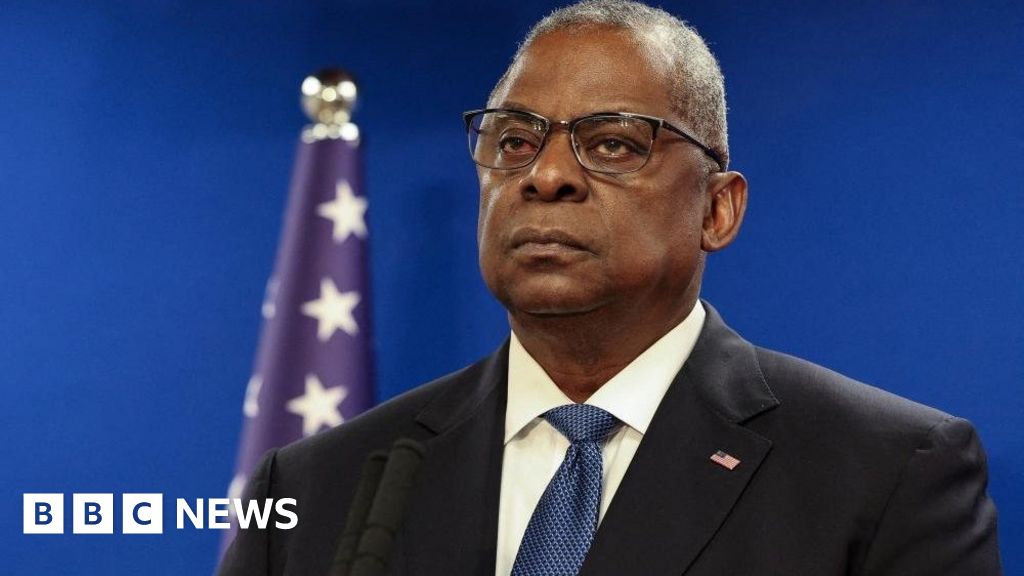- By Ruth Comerford
- BBC News
The US Defence Secretary Lloyd Austin remains in hospital in “good condition” following treatment for prostate cancer, the Pentagon has said.
In a statement, it said Mr Austin had resumed some of his duties and is in “contact with his senior staff”.
It added that there was no specific date for his release from hospital.
Mr Austin, 70, was admitted to an intensive care unit on 1 January due to complications from a late-December surgery.
But senior defence officials and the White House did not learn he was seriously ill until three days later.
In a statement released on Saturday, Pentagon press secretary Maj Gen Pat Ryder said Mr Austin “has full access to required secure communications capabilities and continues to monitor [the Department of Defence]’s day-to-day operations worldwide.”
He added he would provide “daily updates” on his condition.
The defence secretary is just below the president in the chain of command for the US military, and is regarded as one of the most important members of the cabinet.
His secret admission to hospital has prompted security and transparency concerns, prompting the launch of three probes into the handling of his health crisis at the White House.
The Pentagon’s inspector general has said it will be investigating the matter.
The investigation follows a 30-day assessment ordered by the cabinet secretary’s own office and a review conducted by the White House.
Mr Austin has faced criticism for not telling senior officials about his treatment for days, and has since apologised for not “ensuring the public was appropriately informed”.
President Joe Biden has stood by him but has conceded it was “sub-optimal” that he had not disclosed the seriousness of his illness.
The White House has since informed cabinet secretaries that they must make it clear to the administration when they are unable to perform their duties.

Emily Foster is a globe-trotting journalist based in the UK. Her articles offer readers a global perspective on international events, exploring complex geopolitical issues and providing a nuanced view of the world’s most pressing challenges.








